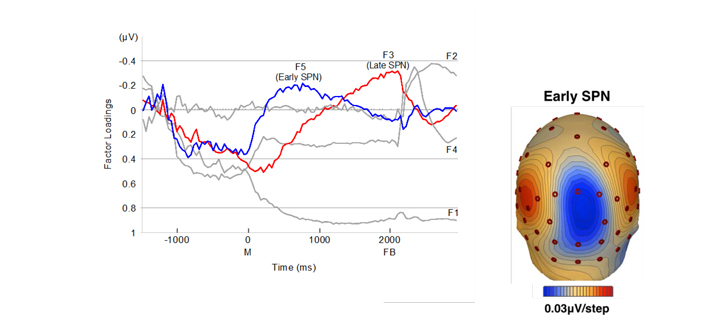Brain Activated by Facial Information before Actually Receiving It
Published: February 6, 2015
-New Brainwave Analysis Reveals the Mechanism of Human Brain Activation in Anticipation-
Assistant Professors Yoshimi Ohgami and Yasunori Kotani in the Graduate School of Decision Science and Technology at the Tokyo Institute of Technology found that when one expects something, the anticipation of facial information activates their brain faster than that of verbal or symbolic information does and proved that people start processing facial information before they actually see it. They compared brain activity levels in anticipation of facial, verbal, and symbolic stimuli by measuring a brainwave known as stimulus-preceding negativity(*note).
SPN is characterized by its right hemisphere preponderance. The study discovered that the activity of the right hemisphere is affected by three factors: (1) different categories of information expected to be received, such as facial, verbal, and symbolic stimuli; (2) the attention system of the brain to detect something new; and (3) motivation levels (e.g., incentives and rewards). The study also found that the relative activity levels of the right and left hemispheres vary depending on the three factors. These discoveries have provided significant insights to promote the advancement of the research on human brain activity in anticipation.
This research was published in the international scientific journal Psychophysiology.

Left (Graph): SPN principal component analysis results
Right: The activity of the occipital face area is illustrated by mapping early SPN on the brain surface.
. Any information published on this site will be valid in relation to Science Tokyo.



